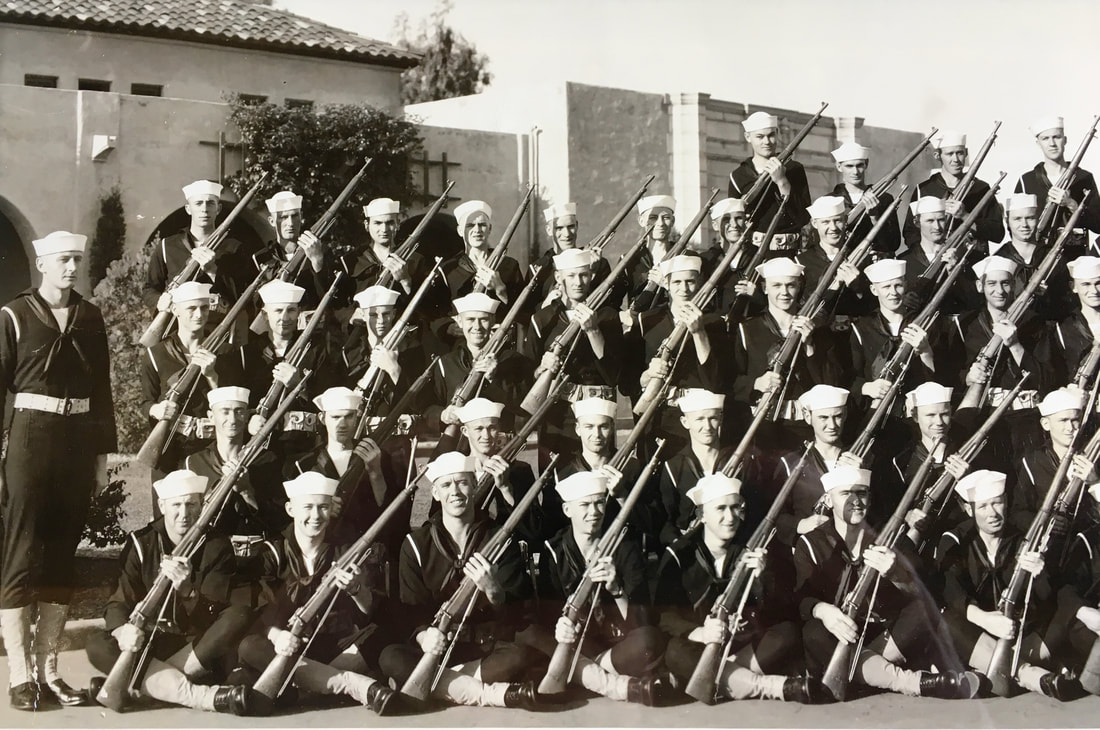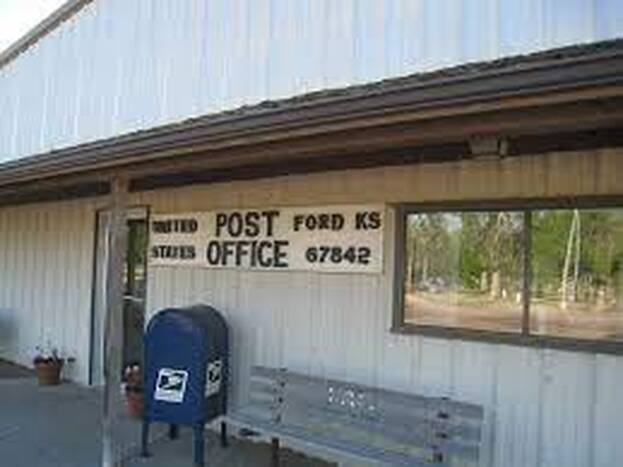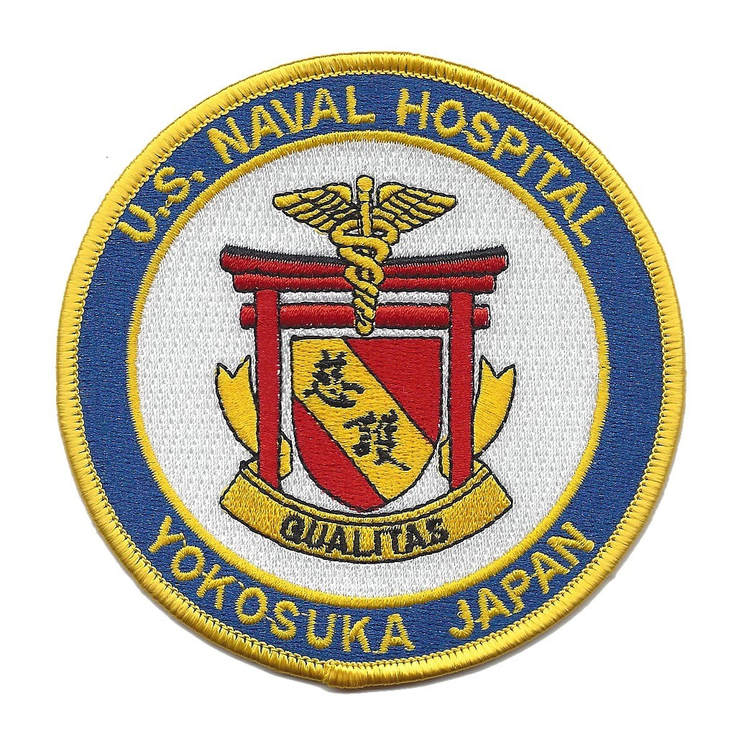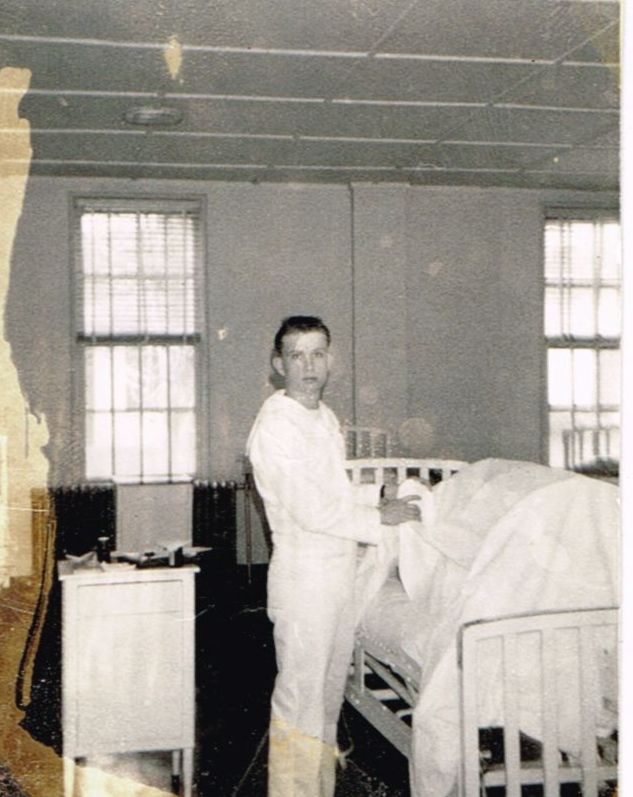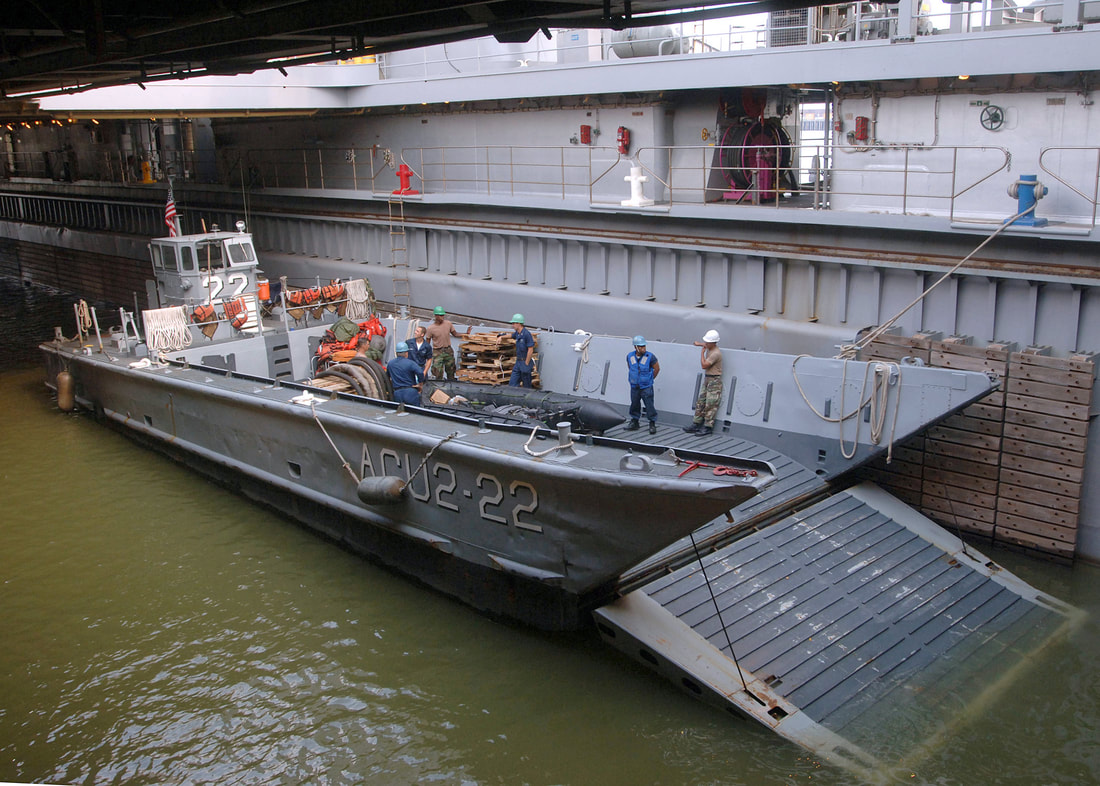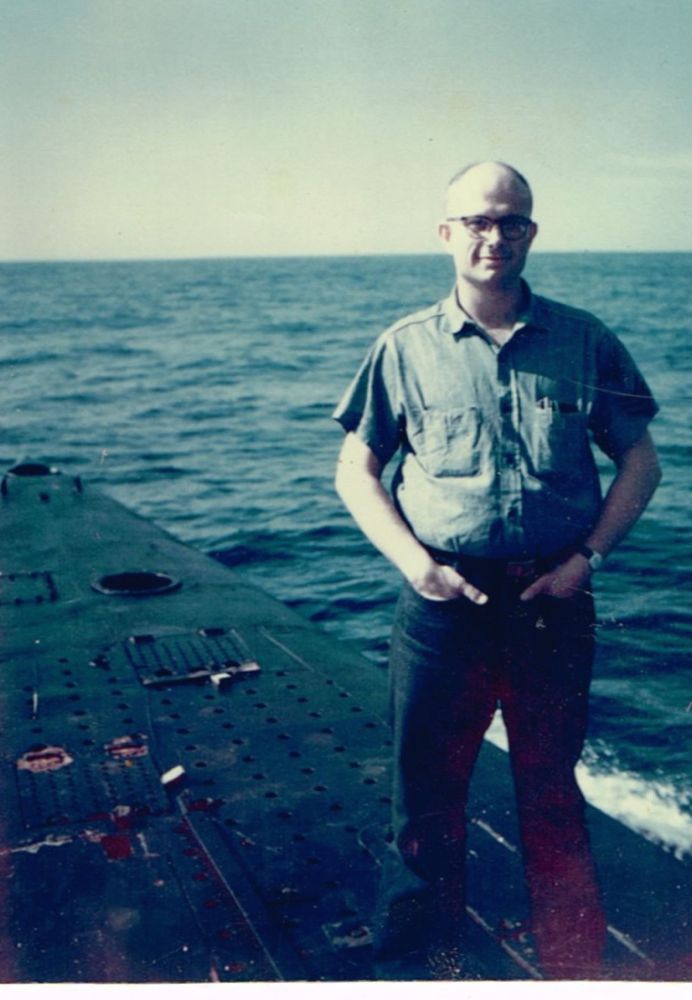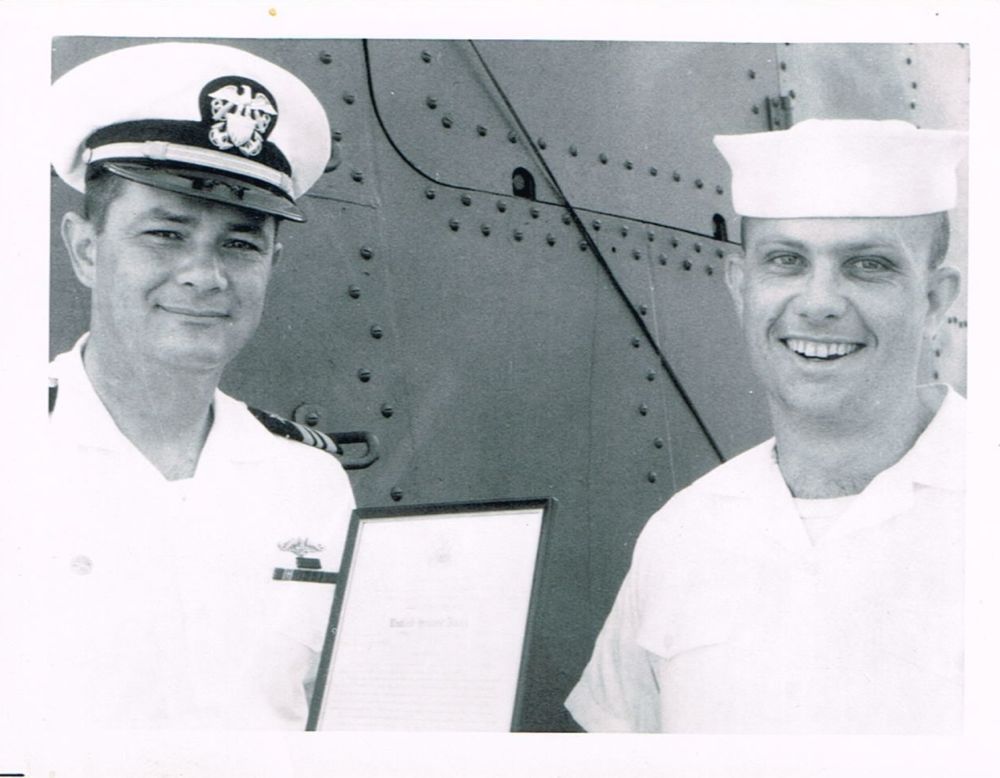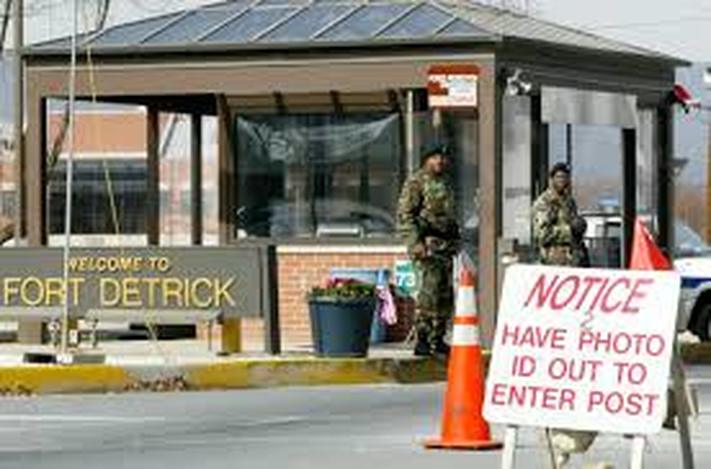Join the Navy, he said.
I am writing this for my family as they were not around when it happened. It ties various things together and I have embedded several links that lead to stories where I felt it was needed. This chronicles a 17 year old boy trying to grow up in this big bad world.
What do you know when you’re 17? I had some sort of idea that I wanted to be a cook. My brother had been in the Navy and even though he got out as a Boatswains Mate, cooking is another thing he did. When he left the Navy he cooked in various restaurants for years and for a time he owned a small restaurant in Dodge City, Kansas. I had worked in King Cole bakery there so I understood a few of the basic concepts.
The recruiter promised me that he would send me to cooking school so off I went. Since I was still 17, I couldn't sign myself in. As you can imagine, he had something to make the parents happy. He offered a special deal called a minority enlistment. More on that later. That was all in the summer of 1961.
I enlisted on 19 June 61 and had my 18th birthday two days later. My first real plane trip took place on the 20th between Kansas City and San Diego with several other rookies. In the first week of boot camp it seemed all we did was take tests. I did much better than I had anticipated. That's when a counselor told me that cooking school didn’t actually exist and that you became a cook through on the job training. My test scores meant that I was going to school somewhere he said. What school do you want?
I really had no idea and my experience in High School left me convinced that I couldn't learn. The counselor determined that I probably would be best in a job providing service to others. We settled on Hospital Corpsman school. I think I owe him.
What do you know when you’re 17? I had some sort of idea that I wanted to be a cook. My brother had been in the Navy and even though he got out as a Boatswains Mate, cooking is another thing he did. When he left the Navy he cooked in various restaurants for years and for a time he owned a small restaurant in Dodge City, Kansas. I had worked in King Cole bakery there so I understood a few of the basic concepts.
The recruiter promised me that he would send me to cooking school so off I went. Since I was still 17, I couldn't sign myself in. As you can imagine, he had something to make the parents happy. He offered a special deal called a minority enlistment. More on that later. That was all in the summer of 1961.
I enlisted on 19 June 61 and had my 18th birthday two days later. My first real plane trip took place on the 20th between Kansas City and San Diego with several other rookies. In the first week of boot camp it seemed all we did was take tests. I did much better than I had anticipated. That's when a counselor told me that cooking school didn’t actually exist and that you became a cook through on the job training. My test scores meant that I was going to school somewhere he said. What school do you want?
I really had no idea and my experience in High School left me convinced that I couldn't learn. The counselor determined that I probably would be best in a job providing service to others. We settled on Hospital Corpsman school. I think I owe him.
Hospital Corpsman school was 16 weeks of learning immersion. There was an odd number of students in my class. I don’t recall the number but I was exactly in the middle. If there were 51, my class standing was 26 of 51. So much for being smart.
The old Bill Cosby joke is that we learned to pass out aspirin and declare people dead. Now that he has been publicly disgraced I don’t suppose it’s politically correct to mention that he was a Corpsman too. His statement is not accurate but we did become barely qualified to do some things. The most important was that we had the foundation to build on when we went to the “fleet”. My graduation date was 1 February 1962.
The old Bill Cosby joke is that we learned to pass out aspirin and declare people dead. Now that he has been publicly disgraced I don’t suppose it’s politically correct to mention that he was a Corpsman too. His statement is not accurate but we did become barely qualified to do some things. The most important was that we had the foundation to build on when we went to the “fleet”. My graduation date was 1 February 1962.
This turned out to be my fleet. I arrived there as a baby faced “new guy” in March, 1962. My first job was trying to learn what being a sailor and an adult was all about. As mentioned above, I had joined the Navy on something called a minority enlistment. In this case minority means under the age of majority or 21. If you joined before you were 18 years old you would complete your enlistment the day before your 21st birthday. Your whole enlistment was an opportunity to wrestle with life, learn a trade, and become an adult. You also received credit for serving four complete years. In my case a three year and one day tour was credited as four. That really was important when it was time to retire.
Well something happened (temporarily) to my free year in 1962. In October the Russians (USSR actually) were caught trying to sneak missiles into Cuba. Life became exciting for people in our military services for a brief spell. One of the first things President Kennedy did was to extend all of our enlistments for a year. My carefully planned 3 year 1 day enlistment was suddenly four years after all. When things returned to semi-normal they rescinded that extension. Again, I was to finish my Navy career the same place it really started. Yokosuka, Japan. Worse things could happen.
A few months before I was to be discharged I was called into the Personnel Office. The Personnel Officer asked me how the Navy could fit in my future. Gut check…I had a job and was getting a regular check. I really felt I would like that job on a ship but who knew? My response was that I didn’t see how I could honestly know. Other than boot camp and school, all that I knew was this hospital. I asked if I could (again) extend for a year and go to a ship or to the Fleet Marine Force. He made a phone call to the detailer desk and told me the next day that he had a ship that would also put me with Marines and Seabees. An amphibious ship.
A few months before I was to be discharged I was called into the Personnel Office. The Personnel Officer asked me how the Navy could fit in my future. Gut check…I had a job and was getting a regular check. I really felt I would like that job on a ship but who knew? My response was that I didn’t see how I could honestly know. Other than boot camp and school, all that I knew was this hospital. I asked if I could (again) extend for a year and go to a ship or to the Fleet Marine Force. He made a phone call to the detailer desk and told me the next day that he had a ship that would also put me with Marines and Seabees. An amphibious ship.
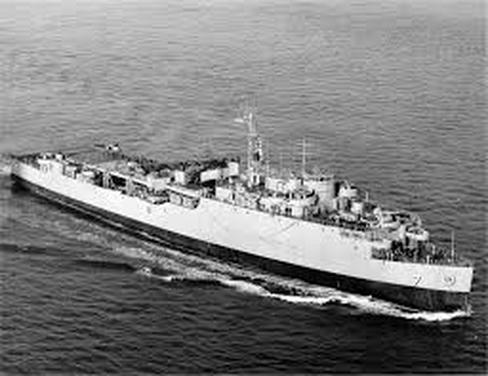 Picture from Google advanced image search
Picture from Google advanced image search
So my ship (USS Oak Hill LSD7) was home ported in San Diego and I was given 30 days leave between stations.
Oops….. home port was San Diego but the ship was actually in Hong Kong. I had to give up my leave and was given a plane ticket for Hong Kong via Taiwan. I flew in and saw a desk at the airport that was British. They got me to a water taxi and I wound up, finally, on my ship.
An LSD is pretty much built like a dump truck or a hollow box. There are ballast tanks in the wing walls and they are able to flood down. A ballast tank lets you pump water in and back out as needed. It is used to lower a ship or dive a submarine. All four of my ships had ballast tanks and three of the four had diesel engines. I expect this one burned diesel to make steam for the turbines but don't recall.
When flooded down and with a lowered tail gate smaller boats can sail in and out. The boat in this picture is fairly decent size and can carry a lot of stuff right up on the beach. The picture below is of a sister ship, the Gunston Hall doing exactly that with two smaller boats. I don’t know if that is practice or represents the reality that was Vietnam.
When flooded down and with a lowered tail gate smaller boats can sail in and out. The boat in this picture is fairly decent size and can carry a lot of stuff right up on the beach. The picture below is of a sister ship, the Gunston Hall doing exactly that with two smaller boats. I don’t know if that is practice or represents the reality that was Vietnam.
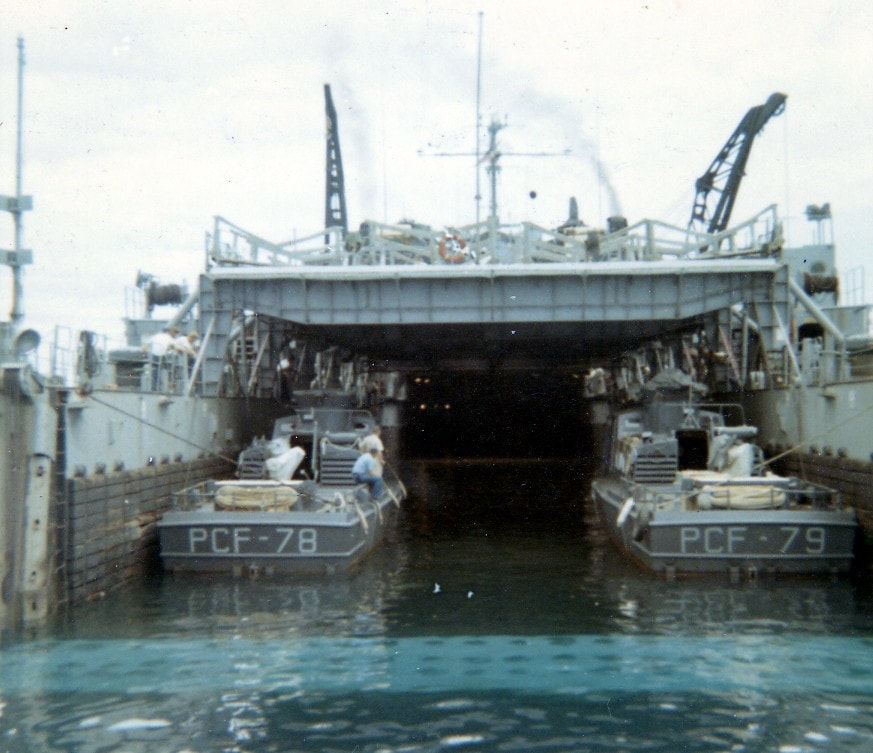 Picture from Google advanced image search.
Picture from Google advanced image search.
I spent a year on that ship and it was pretty eventful. In February 1965 we were involved in the first amphibious landing since Korea. We picked up Marines and I honestly cannot tell you where we put them. I can say that we fully expected to be opposed with hostile fire but were not. I guess the Viet Cong faded back into the greenery and lived to fight another day. 1965 was not an easy year to be there, or so I’m told. For our heroics we were listed as members of the Tonkin Gulf Yacht Club. Tonkin Gulf is right off the coast of Vietnam and of course this is not an official designation. You can find the ships listed that took part in the blue water Navy’s part in the conflict. Two of them were mine.
I gained a lot of respect for the Seabees and Marines that we carried. They were projected into a world of uncertainty and I never really was able to look at them or think of war, even a limited war, in the same way again. We were equipped to be the Hospital Ship in case of casualties but luckily were not called upon. There were troop ships that actually carried Doctors so our Sick Bay, led by a Chief,Hospital Corpsman was not at the top of the list.
I am told that the brain that men carry around seems to mature more slowly. The kid who was the middle man in his Corpsman class grew up some and managed to be promoted to PO3, then PO2. I was so junior I had to excel on the written examination to do it. Promotions were based on the test, one’s seniority, and evaluations. I had good evaluations but no seniority when competing with others of my pay grade.
Somehow during that year I realized that I had found what I was meant to do. I re-enlisted to go overseas on the east coast. That turned out to be Naval Station, Argentia. Well blow me down. I thought it was a typo and I was going to Argentina until the personnel man told me better. I took the orders anyway and was happy.
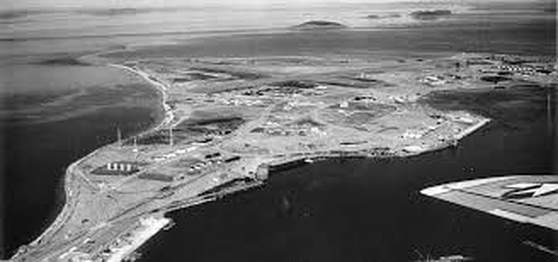 Naval station Argentia Newfoundland. Picture from google advanced image search.
Naval station Argentia Newfoundland. Picture from google advanced image search.
This is where President Roosevelt and Prime Minister Churchill signed the Atlantic Charter in 1941. If I recall correctly the agreement was mostly rendered moot by the attack on Pearl Harbor. By the time I got there it had a Coast Guard station on base and there were two ASW squadrons rotating through. ASW means anti submarine warfare and it seemed much cooler then than it did one duty station later.
The station hospital was a small unit. I was cycled through the Pharmacy because there was not a pharmacy tech (one arrived 3 months later), through the Emergency Room as Leading Petty Officer, and into the Patient Affairs Office where I became acquainted with a bunch of administrative stuff for the first time. As the Mate of the Day watch stander I also did routine lab work, X-rays, and Pharmacy. All in all it was the perfect place for a young Petty Officer to hone his skills before that Independent Duty posting that was sure to come. And come it certainly did.
I was there about 9 months when a request came through for volunteers for Submarine Medicine School. That led to an Independent Duty Corpsman assignment. Both the school and the job had excellent reputations. I volunteered and I was accepted. The orders came through and the “all knowing” folks in D.C. had combined Submarine Medicine and Nuclear Medicine and created a brand new code number. I was really upset when I remembered my math experience in High School and thought of the Nuclear Physics in store. I wanted to quit because I was scared and felt lied to. A Navy Chief took care of that and I am grateful to him (HMC Yelton) for his leadership. When I converted those schools to civilian college credit the Submarine Schools represented over a year of credit in areas I did not care to visit again.
The air controllers went on strike in July 1966. While I would normally have opted to ship my car, I drove instead. I left Newfoundland on 4 Jul 66, I believe, in my brand new VW beetle.Link here That was the trip of a lifetime. Tried to re-create some of it 3 years ago but I wasn’t 23 any longer so it didn’t work.
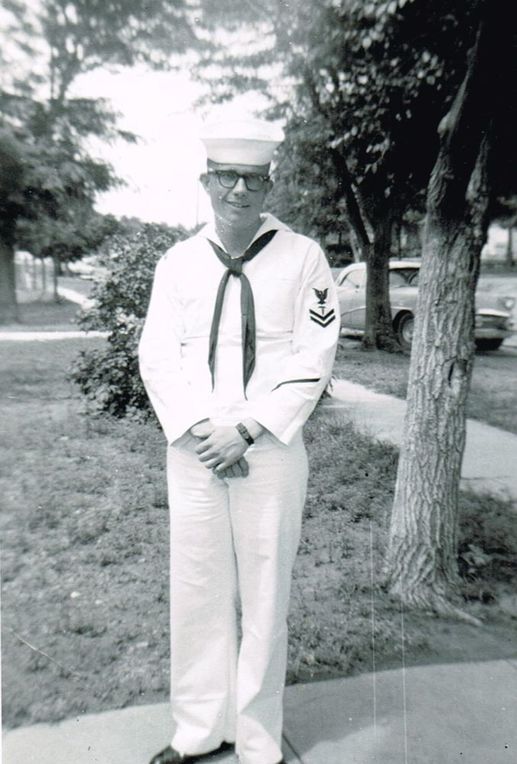 The obligatory picture in uniform for Mom.
The obligatory picture in uniform for Mom.
What a goober but it I didn't know it at the time.
I managed to get through Nuclear Submarine Medicine School better than I thought. My class standing was 3 of 23. I was right behind two Corpsmen who had training and job experience as Radioisotope Technicians.
I had similar standing in the Submarine Medicine Technician school behind a couple chiefs who had prior independent duty tours. I guess if you averaged those two I must have been number one or two. They didn’t average.
I was somewhere in the middle on basic submarine school which taught about tanks, valves, and engines. Surprised I wasn’t dead last.
If I remember correctly I checked on board the USS Clamagore (SS343) about April of 67. She was in the shipyard at Portsmouth N. H. Not the least confusing factor there is that Portsmouth N.H. is actually in Kittery, Maine.
My home for about a month was a berthing barge. The chief I was relieving was still there and it didn’t look like he had done anything for quite a spell. He stayed on board with me until we loaded out. I guess looking back, that was fair. Putting a sub back together when you have never been on one could have been traumatizing and he was retiring. When we went to sea, he went on to greener pastures.www.grangerlandrfd.com/subs-my-first-boat-ss343
My home for about a month was a berthing barge. The chief I was relieving was still there and it didn’t look like he had done anything for quite a spell. He stayed on board with me until we loaded out. I guess looking back, that was fair. Putting a sub back together when you have never been on one could have been traumatizing and he was retiring. When we went to sea, he went on to greener pastures.www.grangerlandrfd.com/subs-my-first-boat-ss343
In 1967 I was promoted to PO1 and qualified in Submarines while on board this ship.
In 1969 I transferred to the USS Sailfish (SS572). www.grangerlandrfd.com/my-second-boat.html
In a period of 5 years I went from “baby faced corpsman” to independent duty corpsman and submarine qualified. I was pretty happy with all that but as described in the above link, it didn’t last as long as I wanted.
In 1969 I transferred to the USS Sailfish (SS572). www.grangerlandrfd.com/my-second-boat.html
In a period of 5 years I went from “baby faced corpsman” to independent duty corpsman and submarine qualified. I was pretty happy with all that but as described in the above link, it didn’t last as long as I wanted.
http://www.grangerlandrfd.com/navy-unit-fort-detrick.html
Fort Detrick was a very good duty station. However, no real need to spend a lot of ink writing about it as it's covered in the above link. I spent about six months there before the Navy asked for volunteers for the Vietnamese Advisor Program. There were one year and two year advisor programs but it was misleading. Since it took almost a year of training the commitment was actually for 2 and 3 years out of your life. Passing the Foreign Language Aptitude Test FLAT was a prerequisite.
I volunteered and took the test. The test was about development and use of a made up language. You used the words you were taught and built on your vocabulary. I felt pretty good about my chances until I saw my score and I was devastated. It was about 35 if I remember correctly. I was grousing to the personnel man about my score when he told me it was misleading. He had taken the test himself and told me that the score was very high and that I should expect to be selected. He was right but it still makes no sense..
There isn’t much to say about learning a language. I found I had a knack for it. I spent 35 weeks in class at Biggs Field, Fort Bliss in El Paso, Tx. Did well and was transferred to the Naval Amphibious School in Coronado California. There were classes in Vietnamese customs, how to act at the dinner table, and how to escape if you were caught. That was a school at Whitby Island in Washington State.
President Nixon, in an attempt to make the war wind down started a program known as Vietnamization. Giving our jobs to the vietnamese. A lot of us were in the same boat but I was particularly disappointed. I was to teach Vietnamese Corpsmen, in vietnamese language. The job disappeared before I left Coronado.
After learning vietnamese for 35 weeks, I wound up in Panama. www.grangerlandrfd.com/my-favorite-shore-station It sure beat being shot at and was the shore duty I liked the most. Probably because it was the only one that truly let me do what I loved to do.
Fort Detrick was a very good duty station. However, no real need to spend a lot of ink writing about it as it's covered in the above link. I spent about six months there before the Navy asked for volunteers for the Vietnamese Advisor Program. There were one year and two year advisor programs but it was misleading. Since it took almost a year of training the commitment was actually for 2 and 3 years out of your life. Passing the Foreign Language Aptitude Test FLAT was a prerequisite.
I volunteered and took the test. The test was about development and use of a made up language. You used the words you were taught and built on your vocabulary. I felt pretty good about my chances until I saw my score and I was devastated. It was about 35 if I remember correctly. I was grousing to the personnel man about my score when he told me it was misleading. He had taken the test himself and told me that the score was very high and that I should expect to be selected. He was right but it still makes no sense..
There isn’t much to say about learning a language. I found I had a knack for it. I spent 35 weeks in class at Biggs Field, Fort Bliss in El Paso, Tx. Did well and was transferred to the Naval Amphibious School in Coronado California. There were classes in Vietnamese customs, how to act at the dinner table, and how to escape if you were caught. That was a school at Whitby Island in Washington State.
President Nixon, in an attempt to make the war wind down started a program known as Vietnamization. Giving our jobs to the vietnamese. A lot of us were in the same boat but I was particularly disappointed. I was to teach Vietnamese Corpsmen, in vietnamese language. The job disappeared before I left Coronado.
After learning vietnamese for 35 weeks, I wound up in Panama. www.grangerlandrfd.com/my-favorite-shore-station It sure beat being shot at and was the shore duty I liked the most. Probably because it was the only one that truly let me do what I loved to do.
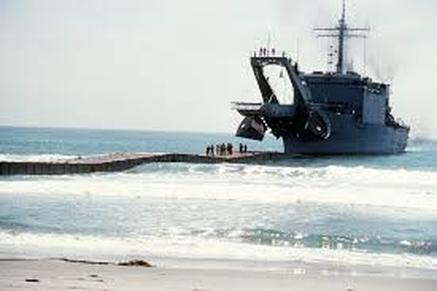 USS Harlan County LST 1196. Courtesy of google advanced image search.
USS Harlan County LST 1196. Courtesy of google advanced image search.
The last ship I was on had ballast tanks and burned diesel oil thru some great big diesel engines. Unlike the LSD ships shown earlier these pulled forward into the beach. There are big cables on those big horn looking things. They pull little bridges called causeways into the water. If they were already there you just pulled onto them. They are LSTs and that stands for Landing Ship Tank.
I didn't really care for Norfolk but we didn't spend much time there. Things were going ok when I got promoted again. My skipper liked me quite a bit and was not happy to know I was promoted off his ship. There are no numbers visible but Goodle advanced image search says this is my ship. The USS Harlan County LST 1196 at work. I was transferred to Guam..
I spent the next 4 years in a leadership position (E8). When I arrived I was informed that they had enough people working in the medical spaces. I was to be the Chief of Police (termed The Security Officer there). I don't think that it's a coincidence that after almost four years of that I opted for permanent shore duty and retired. Having a three year old who kept getting pneumonia made going to sea less attractive. Looking back, I sure wouldn't trade those years for anything. I might have done some things differently but I'll keep them.
I didn't really care for Norfolk but we didn't spend much time there. Things were going ok when I got promoted again. My skipper liked me quite a bit and was not happy to know I was promoted off his ship. There are no numbers visible but Goodle advanced image search says this is my ship. The USS Harlan County LST 1196 at work. I was transferred to Guam..
I spent the next 4 years in a leadership position (E8). When I arrived I was informed that they had enough people working in the medical spaces. I was to be the Chief of Police (termed The Security Officer there). I don't think that it's a coincidence that after almost four years of that I opted for permanent shore duty and retired. Having a three year old who kept getting pneumonia made going to sea less attractive. Looking back, I sure wouldn't trade those years for anything. I might have done some things differently but I'll keep them.
